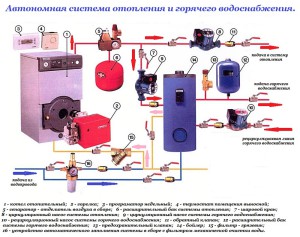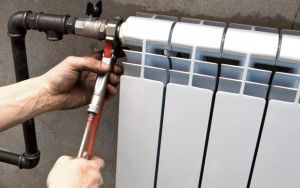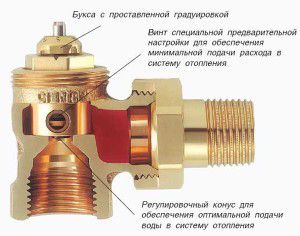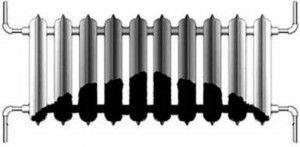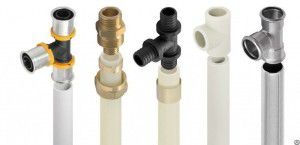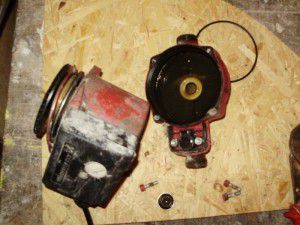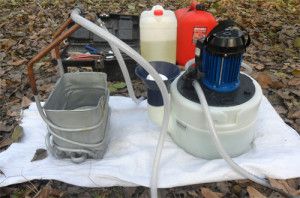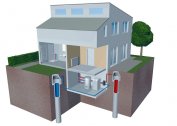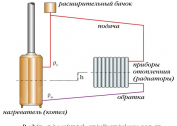Even the most modern heating system is not protected from the appearance of extraneous noise during its operation. There may be several reasons for this, from improper installation to operating conditions. How to diagnose and eliminate noise in heating systems: batteries, radiators, pumps, pipes? To do this, you must first deal with the factors that cause this phenomenon.
Types of noise and its diagnosis
If during the operation of the heat supply water is noisy in the heating pipes, then there are certain reasons for this effect to occur. First you need to identify them, and then proceed to reduce noise or completely eliminate it.
Why is the water in the heating pipes rustling and how to correct this defect? We will deal with the main types of extraneous sounds. They indicate the objective factors in the occurrence of an undesired effect:
- Crackle in the pipes. Occurs when the heating system is turned on;
- Clicks appearing at regular intervals;
- The constant buzz in highways;
- A barely audible knock.
All these extraneous effects - noise in the heating battery or radiators significantly reduce the comfort of living in the house. In addition, they may indicate a malfunctioning heat supply. If you do not take timely actions to rectify the situation, some element of heating may fail.
If the heating pump or another component of the system is noisy, you should first try to localize the cause of the appearance of extraneous sounds. To do this, it is recommended to use the following methodology:
- Track the frequency of occurrence of the effect.
- Try to identify the dependence - an increase in temperature in the pipes, pressure surges, etc.
- Make sure that the noise in the heating boiler comes from it, and not from other objects in the boiler room.
If it was revealed that the source is a component of the heating system, certain actions should be taken to eliminate this phenomenon.
Often the noise in the heating riser appears due to faulty elements of the safety group - the air vent and the drain valve. Therefore, it is recommended to first check their performance.
Noise in heating radiators
To identify why the heating radiators are noisy, you must first check their condition. Often the reason for this is their breakdown - damage to the case or other obvious design defect. In this case, battery replacement or restoration work is performed.
If everything is fine with the appearance and integrity, the type of noise is determined. More often the effect occurs in the form of clicks or a constant hum. This can be explained by several factors:
- The appearance of a small air congestion. It only slightly complicates the movement of hot water, but at the same time there is a hum in the system;
- A large number of foreign elements in the heating device. This is a common reason why radiators are noisy;
- Thermostat malfunctions. The locking rod has shifted, resulting in unwanted noise defects;
- Incorrect battery installation. Vibration during the flow of coolant is transmitted to the mounting nodes in the wall.
These are the main causes of noise in radiators. After proper diagnosis, you can begin to work to reduce sound effects.
In a centralized heating system, a noisy riser can only be fixed by a management company. To do this, you need to make a statement and pass it to representatives.
The elimination of air congestion can be done using the installed Mayevsky crane. It is designed specifically for these purposes.
If the heating batteries are noisy, the autonomous heat supply should be stopped so that the water temperature drops to + 25-30 ° С. Then you should perform the following actions:
- Open the Mayevsky crane.
- Gradually fill the heating system with water.
- Wait until coolant flows out of the tap. It should be pushed out for 1.5-2 minutes so that the air plug is completely removed.
Then the system starts completely and checks to see if there is noise in the radiators again. If the cause has been established correctly, this effect will no longer occur.
To eliminate noise in the heating battery due to the large amount of debris, the condition of the strainer is first checked. The presence of foreign elements in it (residual rust of pipes and radiators, limescale) indicates a clogged system.
Having found out the cause of the noise in the heating batteries, the system should be cleaned. There are several ways to do this:
- Hydrodynamic. Debris and limescale are removed from the line and batteries under the influence of a strong pressure of water;
- Chemical. Special reagents decompose the blockage into small fractions, which are then washed off from the heating.
This way you can eliminate the noise.
Before choosing a cleaning technology, especially a chemical one, it is necessary to familiarize yourself with the instructions for using the composition or method. In some cases, they can adversely affect the integrity of system components.
It is easiest to diagnose noise in heating batteries due to improper installation. Its source is fasteners installed in the walls. In this case, it is necessary to replace them and re-install.
Noise in heating radiators can be caused not only by a problem in them. In some cases, the cause is the malfunction of other components of the system - boilers or pumps. Experts recommend a comprehensive approach to solving the issue of noise in heating batteries. Only a complete diagnosis will help determine the true cause.
Noise in heating pipes
How to determine why the heating pipes are noisy and what causes this phenomenon? The first step to identify the causes is to follow the methodology described above. So, a constant hum can indicate an incorrect operation of the circulation pump.
The noise of water in heating pipes can be caused by a number of factors. Often they are complex in nature - as if adjusting to each other, they create a complex form of sound effects. We will deal with the cause of noise in heating pipes by the nature of the sound:
- Drilling and clicks indicate clogged pipes. Reducing the bore diameter creates excess pressure in a certain section of the system, which is the cause of the noise;
- Cracking causes air valve failure. After checking it and detecting a malfunction, replace it;
- Vibration due to improper installation. Noise in the heating pipe occurs when the coolant passes through - the line can hit the wall.
The easiest way to get rid of extraneous sounds is to flush the heating system. To do this, you can use the methods described above. Diagnosis of improper fastening is carried out by touching the line. If strong vibration is felt with the simultaneous noise of water in the heating pipes, additional fasteners should be installed.
Water in the heating pipes can make noise due to improper operation of the mixing unit - a large temperature difference leads to the expansion of metal pipes and the appearance of extraneous noise.
Noise in heating pumps
Constant noise in the heating pump may occur due to a partial breakdown of its components - the impeller or rotor. At the same time, the functioning of the entire system deteriorates, which leads to a decrease in the efficiency of its operation. To eliminate this, repair the pump or install a new one.
Also, constant noise in the circulation pump can be caused by its unstable operation. voltage drops lead to loss of synchronization and, as a consequence, to uneven movement of the coolant. This can cause noise in the heating system in other areas - in pipes and radiators. It is possible to check the pump only after a complete diagnosis. It is impossible to perform it at home without special equipment.
In addition, noise effects in the riser or other areas of the heat supply can occur due to a pump malfunction for the following reasons:
- Incorrect installation. The rotor of the device must be strictly horizontal;
- Equipment power mismatch with estimated data. This leads to a significant increase in the flow rate of the coolant along the mains. The only way out is to install a pump of the appropriate capacity.
In practice, it is extremely difficult to diagnose noise in a circulation pump. To do this, it is necessary to dismantle it and disassemble the structure. This can only be done with special work skills and diagnostic tools. Therefore, this work is best entrusted to professional repairmen.
For the correct calculation of the pump power, it is recommended to use special software systems.
Noise in heating boilers
Constant noises in the heating boiler occur for the same reasons as pipes and radiators. Most often, this is the deposition of lime and clogging of the heat exchanger. But it all depends on the design of the equipment and the principle of its operation.
If timely cleaning of the heat supply system has not yielded results, you should look for reasons in another. In practice, noise in the boiler may indicate a malfunction. Therefore, it is best to call specialists from the service center who will eliminate the cause under the guarantee or by taking a moderate fee.
If it is impossible to perform these actions, you can try to independently determine the cause of the noise in the boiler. It largely depends on the design and type of fuel used:
- Solid fuel models. Extraneous sounds may occur in the chimney. This contributes to its clogging and reduced traction. To eliminate it, clean the pipe and start the boiler at full power;
- Gas. Uneven burner operation. This is typical of older models without devices for monitoring flames and CO2 levels. It is best to install a new modulation burner;
- Diesel and waste oil. A characteristic whistling sound arises from the nozzle nozzle. This indicates an excessive amount of soot, which also prevents the complete heat transfer of combustible fuel.
After identifying the causes, you should try to correct them at home. Cleaning is carried out only according to the method recommended by the manufacturer of the heating equipment. It is important to choose the right cleaning products and the technology for their use.
It is also necessary to remember that there may be several reasons for the appearance of extraneous probes in the heating system. Removing one - the problem will not be solved. Only comprehensive diagnostics will reduce the noise level in the heat supply of the house.
In the video, you can familiarize yourself with the technology for removing air jams that cause noise in heating:
